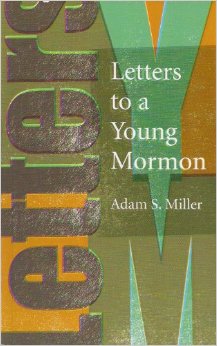Author’s Note: The following is a significant revision and expansion of my earlier post "Homosexuality is Not a Sin." This update is part of Queer Pioneer Week at Approaching Justice.
“Love the Sinner, Hate the Sin."
I see this phrase a lot. It is no longer particularly clever. In some cases it is harmful and wrong. Well, at least when used in reference to homosexuality and I have rarely heard it used outside the context of discussions about homosexuality.
The primary reason that I bristle against this saying is that I reject the idea that homosexuality is a sin. We should love everyone, including sinners…since we are all sinners and we are supposed to love everyone,  even our enemies. I am not saying that we should instead hate the sinner.
even our enemies. I am not saying that we should instead hate the sinner.
I am not rejecting the idea of sin at all. Instead, I am saying that the construct which frames homosexuality as a sin is figment of convention and tradition. There very much is sin and evil. To say that something is not sin is very different than saying that their is not sin at all.
As you will notice, I am using sin interchangeably with immorality or, more specifically, acts of immorality. I do this because I view sin as anything which serves as a barrier or obstacle to communion with God and our fellow humans. These two types of communion, communion with God and with our fellow beings, cannot be separated from each other and our communion with God is largely measured by the communion we have with others. Central to my conception of morality, and therefore sin, is an emphasis on respecting the autonomy and dignity of all.
Kantian Morality
I tend to adhere to the idea of autonomy advanced by the philosopher Immanuel Kant. For Kant, humans are special (and deserving of universal respect) because they are able to choose for themselves their own conception of the good life. Not only can we choose a conception of the good life (the type of life we want to

live), but we can revise that conception as life goes on. When our views "evolve"; we are being human…and very possibly in a good way. Kant’s view of autonomy and the good life expresses how I feel about freedom and morality better than anything else that I have read and contemplated.
Is autonomy the same thing as agency? Within my own religious tradition, it has become rather unclear about what agency is as the emphasis is normally on what agency is not. While I can see where there might be similarities between the concept of Kantian agency and Christian agency, I will treat them as distinct ideas which are not in conflict which each other.
I was once asked, "Do you care more about what Kant says than what the Bible says?" I have no idea what Kant thought about homosexuality. However, I do care more about morality than I do the Bible.
Sex and Sexuality
“Love the sinner, Hate the Sin,” is a saying with great intentions. It is a way of saying “You can dislike a certain action, but you should be nice, even loving, to those that do it.” It seems to be most often used (in my experience, at least) within discussions about homosexuality. We should love homosexuals, but hate their homosexuality. Now, some might respond that it is not homosexuality, but homosexual sex which is the sin. Many will insist that it the is nothing wrong with homosexuality, it is only sin, they will say, when that homosexuality is acted upon.
While there is more to sexuality than sex…sex is a very integral aspect of sexuality which cannot be completely separated from sexuality. The problem that I see with this saying and related thinking, as applied to homosexuality, is that it seeks to separate the actions of the individual from the peaceful life-style they chose to live. As a wise heterosexual friend once told me, can you imagine telling another straight person that they could be straight…just do not EVER act on it?
Now, I do not think that gays and lesbians choose to be homosexuals, but from my Kantian perspective this matter is not of moral significance (though I appreciate that for others it is) If one chooses to be gay, or even chooses to live ones sexual orientation (rather than actively suppressing it), it is part of their basic humanity to choose to do so and to live according to their conception of the good life. This contention tends to bother those who advocate for gay rights, because often time their arguments are based on the idea the homosexuals are born that way. Their argument sometimes heavily hinges on this reality. In some sense, this is a natural law argument of sorts. Why would God create homosexuals if God did not approve of and love them? I appreciate this argument. However, I find natural law arguments to be flimsy, even if I agree with the point they are trying to prove. Such arguments do appeal to a certain American sensibility. However, it is one of my least favorite aspects of American thinking.
Now, you may be saying, “Well, of course they can choose to be gay, Baptist, atheist, or…a Yankees fans.” Clearly we can choose any number of things of varying significance as part of our lives. But my argument goes farther. We should not only allow people to make choices, we should also respect them for their choices and show them the dignity that they deserve. By dignity I do not mean that we should merely not abuse or persecute them, but we should include them in our society as valued equal citizens.
What about criminals and abusers? Can’t people choose such paths as their conception of the good life? Well, this is where Kant draws a line. Kantian ethics is not relativistic. Instead, it is likely the most ardent rejection of relativism I am aware of.
Those who show a blatant disregard for human dignity (particularly when it comes to acts which assault the autonomy and dignity of others) should be viewed as immoral. They should possibly even go to jail or otherwise be controlled be the state. This includes rapists, abusers, and thieves. That said, it would be very hard to see how any of these crimes could be viewed as a reasonable conception of the good life, or integral to any such a conception, in the way that living with one’s loved-one would be. We should love the sinners within these categories while hating their sins. This may well be a challenge, but the saying in question may be a useful reminder in some instances.
Many will point out that the saying "Love the sinner, hate the sin" has been used by many religious leaders in reference to homosexuality. That is true. I think that this has in many ways been used as a call for a loving approach to political and social disagreement. More importantly, it is a call to patience and charity. But this mostly just proves that religious leaders use it. That mere fact does not show moral import.
When we look deeper, this attempt to separate individuals from the people that they really false short. If we are to respect, value, and love, we have to respect the whole package, the whole person.
Is there such a thing as sexual sin?
Can their be homosexual sin? Indeed, there can be and there very much is such a thing as sexual sin. The intimacy and vulnerability that comes with any sexual relationship makes such relationship matters of both privacy and morality.
Promiscuity and unfaithfulness are wrong for homosexuals as they are for heterosexuals. As in any form of abuse, whether the abuse is spiritual, physical, or sexual.
What about sex outside of marriage? One criticism of homosexual sex is that it cannot happen within marriage. In some sense, part of what makes same-sex marriage so subversive is that it turns this tired and worn argument about homosexuality on its head.
However, the desire to enter into committed relationships, whether we call those relationships marriage or not, is a righteous desire. The move toward same-sex marriage should be welcomed, if not celebrated, by those who are concerned about both individual happiness and strong communities.
To condemn homosexuality on the grounds that it is outside the bonds of marriage, while at the same time opposing access to that very form of marriage is cruel and twisted. In many ways it shows the extent to which society has gone to marginalize and exclude gays and lesbians. As these constructs crumble, the effort to maintain them become more and more desperate.
What about pre-marital sex? Is that just fine and dandy? No, I am not saying that at all. To the extent that healthy sexual relationships are important, I think was can defend the idea the sex in certain circumstances is not healthy and possibly immoral. Sex during the teenage years is an example of this. I do not think that teens are mature enough to have healthy sexual relationships. Does this mean that teenagers who have sex will go to hell? Heck, if they are not mature enough to have sex, they are likely not mature enough to condemn themselves to hell. However, it is something that our communities may be justified in discouraging. How we do that is an additional discussion. I just do not see sexual orientation as playing a role.
Faith and Openness
We should stop using God as a tool for reinforcing our cultural traditions and conventions. Using God for such ends is not only disrespectful of God, it is polluting the waters of faith and religion.
 Why is faith and religion important to you? Is it merely a means to achieving your cultural and political goals? I cling to the hope that faith and religion are valuable in and of themselves. Yet, using these things to persecute and exclude homosexuals is distracting us from faith and religion rather than protecting faith and religion.
Why is faith and religion important to you? Is it merely a means to achieving your cultural and political goals? I cling to the hope that faith and religion are valuable in and of themselves. Yet, using these things to persecute and exclude homosexuals is distracting us from faith and religion rather than protecting faith and religion.
Instead, let us expand both our political communities and spiritual communities. Open our political communities to all willing to live peacefully as equal citizens. Open our spiritual communities to all striving to love God and neighbor.











